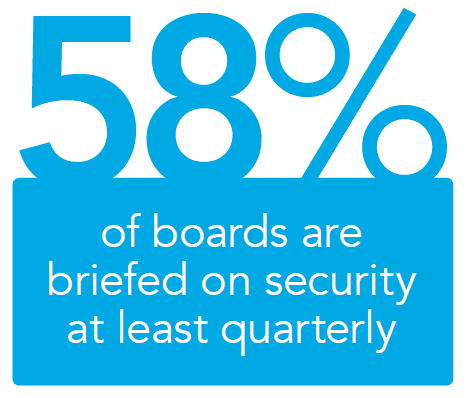Your company’s data is everything. And today it is everyone’s job to safeguard it from breach. Whether you are already implementing security practices in your environment or not, the need to protect sensitive data – and the increasing skill of cyber criminals – means that every IT professional needs to take ownership of security.
Our friends at ISC2 have four reasons why you should be learning more about security and working closely with team members from the security department.
Security should be baked in from the start of all IT efforts
Security processes used to be seen as bottlenecks and barriers to innovation. That is not the case anymore. All corners of the organisation are beginning to support security practices and know it needs to be baked into IT from the start of all initiatives. Thinking about the risk and compliance concerns of every project at the outset is one way to avoid a “no” response from the security folks once it is in development or well under way.
Executive management and the board are watching
Security is now everybody’s business in an organisation. IDG research finds 44% of organisations have corporate boards that actively participate in their overall security strategy. The same research also finds 58% of boards are briefed on security at least quarterly.
You want to keep your name out of the headlines
Security is now everybody’s business in an organisation. IDG research finds 44% of organisations have corporate boards that actively participate in their overall security strategy. The same research also finds 58% of boards are briefed on security at least quarterly.
The infosec skills gap will require security knowledge
The skills gap facing information security is severe and expected to grow. In fact, the cybersecurity skills crisis is predicted to leave up to 1.8 million jobs unfilled by 2022. Companies are feeling the pinch and resorting to creative options to fill security roles. IT professionals of all backgrounds will need to learn more about and understand security and risk to offer value to their employers. According to a report from ISC2, “The dynamics of the gap—including the impact on businesses and individuals— are complex. Cybersecurity touches almost everyone in an organisation. Employees from Legal to Marketing, Finance to Operations, are increasingly aware of how data flows through the organisation and what it takes to keep it secure. Meanwhile, IT (IT/ICT) professionals are often responsible for securing their organisation’s critical assets, but don’t have a formal information security title.”
Here are some of our ISC2 scheduled courses:
See the full ISC2 schedule here or see our full cybersecurity courses here.
References: ISC2, eBook, Why add security to your skill set and how to do it 2019







